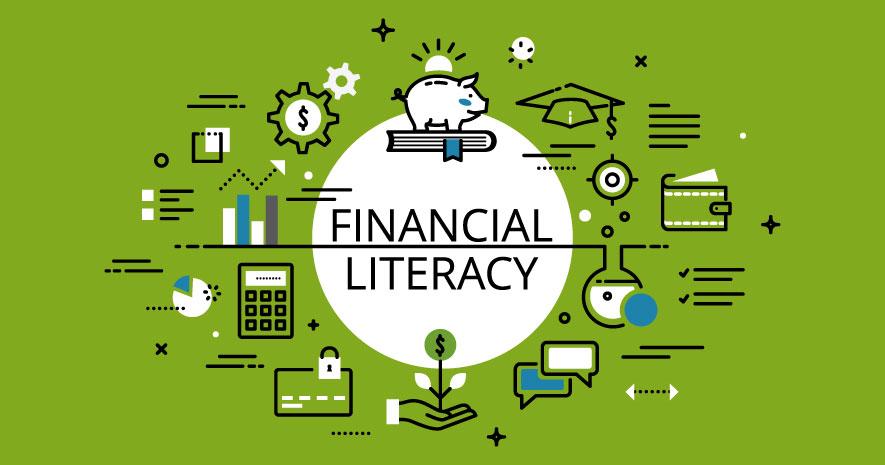Hey there! Have you ever thought about the connection between financial literacy and mental empowerment? In this article, we’ll take a closer look at how understanding money matters can not only help you build a strong financial future but also boost your mental well-being. Let’s dive in!
Understanding the Link Between Financial Literacy and Mental Health
Financial literacy is more than just understanding how to balance a budget or save for retirement. It also plays a crucial role in our mental well-being. When we have a solid grasp of financial concepts and practices, we feel more empowered and in control of our lives. This sense of empowerment can lead to reduced stress, anxiety, and depression, ultimately contributing to better mental health overall.
By being financially literate, individuals are better equipped to make informed decisions about their money, which can alleviate some of the financial pressures that often weigh heavily on our minds. When we can confidently navigate financial challenges, we are less likely to experience the negative mental effects that can stem from money-related stress. Investing in financial education is not just about building wealth—it’s also about cultivating a sense of mental resilience and empowerment that can benefit us in all areas of life.

The Benefits of Improving Financial Literacy on Mental Well-being
Financial literacy plays a crucial role in an individual’s overall well-being, including their mental health. When individuals have a strong understanding of finances, they are better equipped to make informed decisions and manage their money effectively. This sense of control can lead to reduced stress and anxiety related to financial matters, ultimately improving one’s mental well-being.
Moreover, being financially literate can empower individuals to set and achieve their financial goals, leading to a sense of accomplishment and increased self-confidence. By understanding concepts such as budgeting, saving, and investing, individuals can take proactive steps towards securing their financial future and alleviating worries about money. Building this financial resilience can have a profound positive impact on mental health, promoting peace of mind and overall happiness.
| Benefits of Financial Literacy |
|---|
| Reduced financial stress |
| Increased self-confidence |
| Improved overall well-being |

Practical Tips for Enhancing Financial Literacy to Boost Mental Empowerment
Understanding the basics of budgeting is a crucial step in enhancing financial literacy. By creating a monthly budget, individuals can track their expenses and income, allowing them to make informed decisions about their finances. This simple practice can help relieve stress and anxiety related to money management, providing a sense of control over one’s financial situation.
Another practical tip for boosting financial literacy is to educate oneself on different investment opportunities. Learning about stocks, bonds, and other investment options can open up new avenues for growing one’s wealth. By diversifying their investment portfolio, individuals can protect themselves against market volatility and potentially increase their financial stability in the long run.
Q&A
Q: What is financial literacy?
A: Financial literacy is the ability to understand and make informed decisions about financial matters. It involves knowledge of topics such as budgeting, saving, investing, and managing debt.
Q: How does financial literacy affect mental empowerment?
A: Financial literacy can lead to mental empowerment by reducing stress and anxiety related to money. When individuals feel more in control of their finances, they are likely to experience greater confidence and overall well-being.
Q: What are some benefits of being financially literate?
A: Some benefits of being financially literate include being able to make informed decisions about money, setting and achieving financial goals, and being better prepared for unexpected expenses or emergencies.
Q: How can someone improve their financial literacy?
A: Improving financial literacy can be done through various means, such as taking financial education courses, reading books or articles on personal finance, working with a financial advisor, or using online resources such as budgeting apps.
Q: In what ways can financial literacy impact one’s life outside of finances?
A: Financial literacy can have a positive impact on various areas of life, such as relationships (by reducing financial disagreements), health (by lowering stress levels), and career (by increasing job satisfaction and opportunities).
In Summary
So next time you’re thinking about your financial goals, remember that being financially literate doesn’t just benefit your wallet, but also your peace of mind. Stay empowered and keep learning! Cheers to a financially savvy and mentally empowered future ahead.



[…] mindful money management, you can not only improve your financial well-being but also make a positive impact on the world around you. Whether it’s investing in companies that align with your values, […]
[…] without a map or GPS. You’ll probably get lost, right? The same goes for money. Being financially literate helps you avoid costly mistakes, prepare for future goals like buying a house, and gives you […]
[…] Modern wearables can monitor variables like heart rate, sleep patterns, and even stress levels. These devices collect data and provide insights that can help users understand their […]